As soon as I started writing The Body Double, I seemed to discover doubles everywhere—in literature, movies, and even the tangled world of internet conspiracies, where they believe your favorite celebrities might not be who they seem to be. The appeal of the double self as a narrative force is clear—a second self to whom we can pin the worst of our behavior, or who, conversely, might be living our dream lives. Here are some of my favorite doubles in the twisted world of mystery fiction and (slightly) beyond!
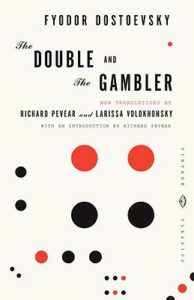
The Double, by Fyodor Dostoyevski
Dostoyevski’s classic tale of a man pursued by his own likeness was one of the first books I remember encountering with a double at its core, and it was definitely at the back of my mind as I wrote my own story of mirroring and desire. I love this book for the way it starts with a kind of closeness—the protagonist, when he first encounters his double, doesn’t hate or fear him like we’re often shown characters hating their doubles. Instead, he is seduced. The double is everything he wants to be, socially successful, suave. It is only once he feels safe with him that the dark side of doubling is revealed, and everything begins, inevitably, to unravel.
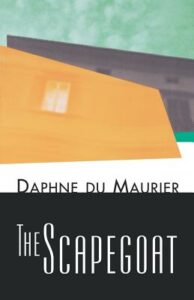
The Scapegoat, by Daphne du Maurier
While arguably Rebecca was more influential to my work writing The Body Double, The Scapegoat is my second favorite Daphne du Marrier tale of someone stepping unexpectedly into another life. I love The Scapegoat both for the tangled web of consequence and intention du Marrier creates, and the questions it raises about what it means to live a good life. The protagonist steps into the life of his double and immediately starts rearranging furniture, trying to make everyone happier, to repair the damage done by the man who has his face. The consequences, however, are not what he expects them to be. A brilliant, and surprisingly emotional, journey of deception.
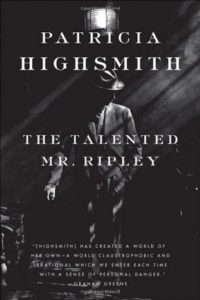
The Talented Mr. Ripley, by Patricia Highsmith
Patricia Highsmith’s most famous case of doubling is definitely the wicked passport forager Tom Ripley, and I gotta admit, when I read this book I was completely taken with his charms. Highsmith is the queen of appealing villainy, and even as Tom breaks every civil and moral law, you can’t help but root for him to succeed. Part of the reason The Talented Mr. Ripley works so well is the pure one two punch of unfulfilled gay desire at its core—the longing Tom has for Dickey Greenleaf is to both be him and be kept by him in a very particular, feminine coded way—as well as Highsmith’s own life of passing, hiding her love of women from the world. So in a sense it’s a novel of doubling and doubling again, a kind of literary hall of mirrors.
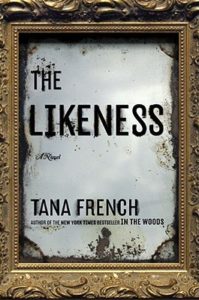
The Likeness, by Tana French
I stumbled onto this book, by the legendary Tana French, in the wake of my grandfather Joe Beyda’s passing. He loved her work, and reading it was a way to feel closer to him during that strange, sad time. So I have a particular affection for The Likeness, which tells the story of a police detective passing herself off as a deceased victim in order to investigate a case. I love this book for the way it investigates the failures of friendship—how we might know the people we consider closest to us less than we think. There’s the satisfying unraveling of the mystery to follow, but also something deeper; the question of what it means to be held by our communities, and, in that closeness, known.
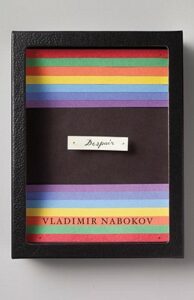
Despair, by Vladimir Nabokov
This one is wild because it’s both about doubles and not about doubles at all. Like many books where someone discovers an identical stranger, the narrator of Despair uses his uncanny resemblance to a tramp he meets by chance to perpetrate a crime of passion. Unfortunately, he might be the only person who believes they look alike at all. Despair is fantastic because it’s so deeply destabilizing. Nabokov uses the text to pose such satisfying questions about the nature of resemblance. What’s more important—the way we look outside, or the hidden resonances within? Despair digs into these thorny questions as only a master can.
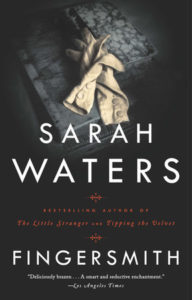
Fingersmith, by Sarah Waters
In one of the craziest, twisty turniest plots of all time (seriously, you need to read this book!), Sarah Waters has her two main characters switch places over and over again. She gets away with this act of transmutation both because, you know, it’s Edwardian England and nobody has an ID, but also because the social force of assumed identity is so strong it is impossible for her main characters to resist. Who are we beyond the names other people give us? And what happens to us when we are no longer considered the person we think we are? The way Sarah Waters plays with the connection between the act of self transformation and the change that comes with falling in love was hugely influential to the way I conceived of desire in writing The Body Double.
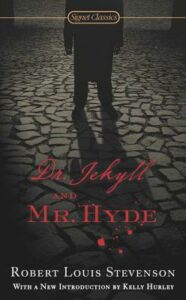
Dr. Jekyll and Mr. Hyde, by Robert Louis Stevenson
Probably one of the first ever books centered around the behavior of a second self, I was surprised at how effectively creepy Jekyll and Hyde is. I was familiar with the conceit of the book of course–the main character’s duality is probably one of the most infamous plots of rarely read but widely known literature–but the details of it, including the distance of the telling, and the huge role foggy, filthy London plays in the unfolding of the story, were a delight to discover. I left the pages feeling unsettled in a hard to shake, bone deep way. Jekyll and Hyde is the perfect rainy day book, easy to plunge through with one pleasurable gulp. It’s no wonder it’s been adapted as many times as it has!
***


















